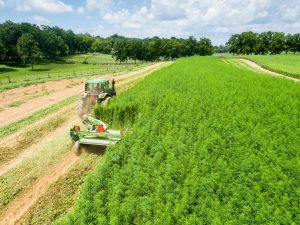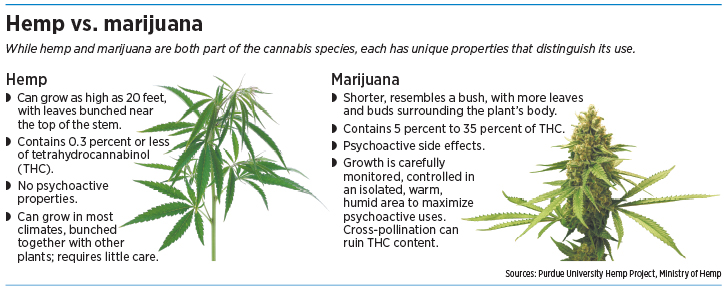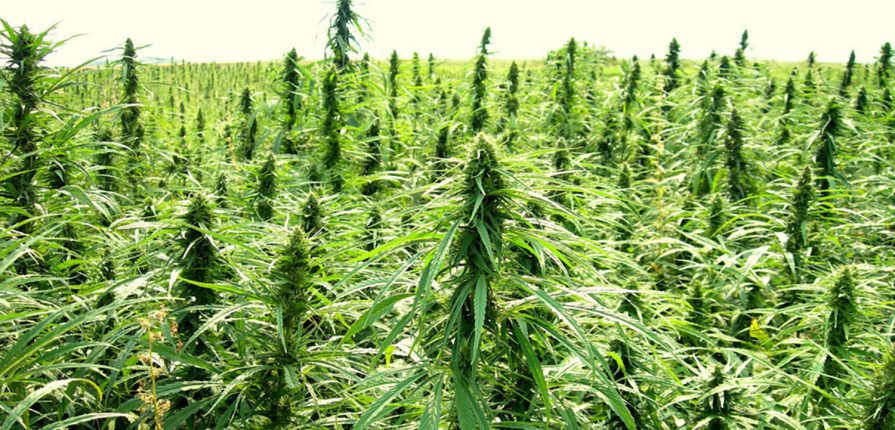The Farm Bill of 2018 legalized the growing of hemp nationwide, but it opened up a new problem for the cannabis industry — and yet another reason that you should be working with consultants, accountants, and lawyers who focus on the cannabis industry, rather than trying to figure things out for yourself.
Part of the problem arises from the Federal laws that ended DEA prohibitions on the growing of hemp because it was considered a Schedule 1 Controlled Substance. The Farm Bill removed that difficulty but it didn’t affect the way the FDA classifies hemp and CBD. The difference between the DEA and FDA classifications means that CBD infused products such as edibles and cosmetics are still not federally legal. If the mere thought of legalized cultivation leads you to consider growing hemp for its fiber and CBD oil rather than taking a chance on growing high-THC weed, you obviously haven’t considered cross-pollination, which is the other part of the problem.

Legalization of hemp carries a caveat that to qualify as legal hemp, the plants can’t have a THC content that exceeds 0.3 percent. As CBD continues to develop in importance as a valuable cannabis industry product, entrepreneurs are increasingly planning to cultivate legal crops of hemp for the production of fibers from the stalks and CBD oil from the seeds. After all, hemp can be easily grown outdoors in fields like wheat. The problem arises from the fact that hemp and marijuana are both cannabis and they can cross-pollinate. Therefore, it is possible to increase the content of THC in a hemp plant by contact with pollen from a marijuana plant that is being grown nearby.
Female marijuana plants produce flowers that are grown for their THC content. While male hemp plants are primarily grown for fibers, if they are planted too close to marijuana crops that are being grown for their flowers and high THC content, pollen from the male hemp plants will negatively impact the THC content of the flowers. Similarly, female hemp plants that are being grown for their seeds, which produce CBD oil, can have their THC content increased beyond the legal limit through pollination from nearby marijuana crops.

Estimates regarding how far hemp must be separated from marijuana crops to avoid coming in contact with pollen range from 3 miles to 30 miles, but most experts agree that the crops must be separated by at least 10 miles to avoid cross-pollination.
In California, where growing high-THC marijuana is legal on a state basis, there is concern that the famous Mendocino and Humboldt County outdoor marijuana grows will be contaminated with low-THC hemp pollen. However, high-THC pollen contaminating low-THC hemp crops, thereby making their THC content too high to qualify under the 0.3 percent Federal limit, is also a big problem.
Typical of the creation of an entirely new industry, the laws regarding the different types of cannabis plants are constantly changing. The latest set of changes is coming from Northern California counties. The Mendocino County Board of Supervisors has already voted to implement a temporary moratorium on hemp cultivation. This presumably seeks to protect the quality of crops being grown for their THC content. Sonoma County is also looking into how they can limit damage from cross-pollination.
Marijuana grown outdoors is prized by consumers because of the THC, terpenes, and resin content of its flowers, which is said to create premium flavor and potency. However, hemp seeds used to manufacture CBD oil make crops grown on small acreage as lucrative as those grown for THC on larger acreage. This is particularly important in Sonoma County where property values are high.
The confusion over expiring permits is only one element of the infant industry developing around cannabis. Even when steps toward legalization of part of the industry give everyone a happy feeling that full legalization is just around the corner and the cannabis business will become as normal as selling donuts, problems like cross-pollination will continue to plague unsophisticated and unwary entrepreneurs. With that in mind, protect yourself by making sure you are working with advisers who know every element of the industry.
Brought to you by
We help you start your cannabis business!
(855)420-8255
staff@420college.org






Leave a Reply
You must be logged in to post a comment.